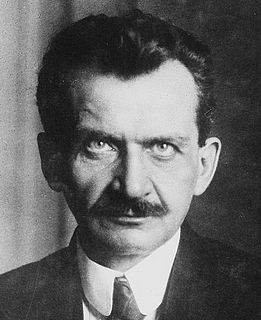
Federal elections were held in Germany on 4 May 1924. The Reichstag had been dissolved on 13 March 1924. The Social Democratic Party remained the largest party in the Reichstag after winning 100 of the 472 seats. Voter turnout was 77.4%.

Folketing elections were held in Denmark on 24 April 1929, except in the Faroe Islands where they were held on 29 May. The Social Democratic Party remained the largest in the Folketing, with 61 of the 149 seats. Voter turnout was 79.7% in Denmark proper and 58.0% in the Faroes.

Folketing elections were held in Denmark on 3 April 1939, except in the Faroe Islands where they were held on 19 April. They followed a dissolution of both chambers in order to call a referendum on changing the constitution. The referendum was held on 23 May but failed due to a low voter turnout. The result of the elections was a victory for the Social Democratic Party, which won 64 of the 149 seats. Voter turnout was 79.2% in Denmark proper and 47.8% in the Faroes.

Folketing elections were held alongside Landsting elections in Denmark on 21 April 1953, except in the Faroe Islands where they were held on 7 May. The Social Democratic Party remained the largest in the Folketing, with 61 of the 151 seats. Voter turnout was 80.8% in Denmark proper but just 20% in the Faroes.

Partial general elections were held in Belgium on 25 May 1902. The result was a victory for the Catholic Party, which won 54 of the 85 seats up for election in the Chamber of Representatives. Voter turnout was 95.7%.

General elections were held in Belgium on 26 May 1929. The result was a victory for the Catholic Party, which won 71 of the 187 seats in the Chamber of Representatives. Voter turnout was 94.0%.
Parliamentary elections were held in Greece on 14 May 1865. Supporters of Alexandros Koumoundouros emerged as the largest bloc in Parliament, holding 95 of the 170 seats. Koumoundouros remained Prime Minister until 1 November, when he was replaced by Epameinondas Deligiorgis.

Parliamentary elections were held in Greece on 4 January 1887. Supporters of Charilaos Trikoupis emerged as the largest bloc in Parliament, with 90 of the 150 seats. Following the election Trikoupis remained Prime Minister, having assumed office on 21 May 1886.

Parliamentary elections were held in Greece on 3 May 1892. Supporters of Charilaos Trikoupis emerged as the largest bloc in Parliament, with 160 of the 207 seats. Trikoupis became Prime Minister for the sixth time on 22 June.

General elections were held in Italy on 23 May 1886, with a second round of voting on 30 May. The "ministerial" left-wing bloc emerged as the largest in Parliament, winning 292 of the 508 seats. As in 1882, the election was held using small multi-member constituencies with between two and five seats.

Parliamentary elections were held in Portugal on 11 May 1919. The three main parties that boycotted the 1918 elections returned to contest the elections. The result was a victory for the Democratic Party, which won 86 of the 163 seats in the House of Representatives and 36 of the 71 seats in the Senate.

General elections were held in San Marino on 29 May 1938. After it had taken over the country in April 1923, the Sammarinese Fascist Party was the only party to contest the elections, winning all 60 seats.
Federal elections were held in Switzerland on 29 October 1939. The Free Democratic Party emerged as the largest party in the National Council, winning 49 of the 187 seats. Due to the outbreak of World War II, there were no elections in nine of the 25 cantons; Appenzell Ausserrhoden, Lucerne, Neuchâtel, Schwyz, Solothurn, Ticino, Valais, Vaud and Zug. In what became known as "silent elections", a total of 55 candidates were elected unopposed.
Folketing elections were held in Denmark on 7 June 1864. The National Liberal Party emerged as the largest faction, winning 40 of the 101 seats. Following the elections, Christian Albrecht Bluhme became Prime Minister on 7 July.
Folketing elections were held in Denmark on 26 February 1853. Christian Albrecht Bluhme of the Højre party remained Prime Minister after the elections, but after the government failed to win a vote on who would succeed King Frederick VII on 18 April by the three-quarters majority necessary, the legislature was dissolved and early elections were held in May.
Folketing elections were held in Denmark on 27 May 1853. Although elections had been held in February, the legislature was dissolved after the government failed to win a vote on who would succeed King Frederick VII on 18 April, resulting in early elections. Anders Sandøe Ørsted remained Prime Minister after the elections.
Folketing elections were held in Denmark on 14 June 1855 in order to approve amendments to the constitution. Peter Georg Bang remained Prime Minister following the elections.
Folketing elections were held in Denmark on 14 June 1858. Carl Christian Hall remained Prime Minister following the elections.
Folketing elections were held in Denmark on 14 June 1861. Carl Christian Hall remained Prime Minister following the elections.
Folketing elections were held in Denmark on 30 May 1865. Christian Albrecht Bluhme remained Prime Minister after the elections, although only until November.











